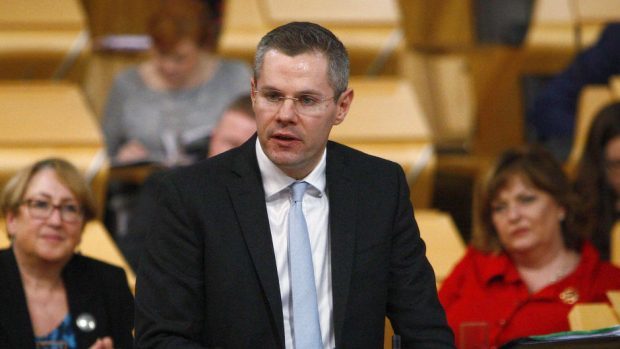Finance Secretary Derek Mackay will hold crunch talks with Aberdeen business leaders today over soaring business rates.
There has been widespread anger at the re-valuations, which took place in 2015 before the full impact of the oil price crash was known.
Dozens of firms have come forward saying they risk going bankrupt if increases – in some cases of more than 200% – are imposed.
A petition against the changes has been signed by almost 200 people within 24 hours of being launched.
Today, Mr Mackay will come face-to-face with bosses at the Aberdeen and Grampian Chamber of Commerce (AGCC) to justify the hikes.
North East MSP Ross Thomson, who has been campaigning against the changes and raised the issue at First Minister’s Questions (FMQs) yesterday, said the meeting will leave Mr Mackay “in no doubt whatsoever” as to the “severity” of the situation.
He added: “AGCC have been clear from the outset that this crisis facing local firms requires an intervention from the SNP government.
“The Scottish Conservatives have also said repeatedly that we need some meaningful action on this issue.
“The minister cannot simply travel up from Edinburgh and pay lip service to the difficulties facing firms in the north-east area.
“I have to say that the response from the first minister at FMQs would suggest that the SNP think they can simply ride this out. I don’t think we can underestimate how catastrophic that could be for the local economy in the Aberdeen area.”
Business leaders said they hoped the meeting would be productive.
James Bream, AGCC research and policy director: “We are looking forward to the opportunity to present the facts to Mr MacKay to ensure he clearly understands how serious this issue is for the area and hopefully for him to accept that and help us find solutions.”
Adrian Watson, chief executive of Aberdeen Inspired, which represents 700 businesses in the city centre, added: “Alongside the AGCC, we hope it is a constructive meeting at which the worries of local businesses are listened to, during what is already a very challenging operating environment for them.”
